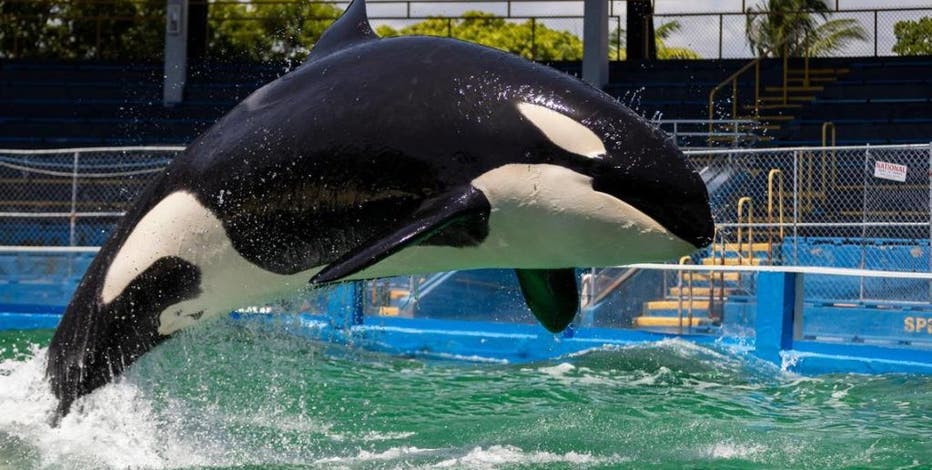Seaquarium where Tokitae died gets evicted by city of Miami
MIAMI - A lease termination was served to the company that runs the Miami Seaquarium (MSQ), the facility where Tokitae, a beloved killer whale that was taken from the Pacific Northwest half a century ago, died in 2023.
Miami-Dade Mayor Daniella Levine Cava said that the Dolphin Company, which runs MSQ, had repeatedly fallen short of contractual obligations.
"From failing to maintain the premises in good condition, to failing to demonstrate that they can ensure the safety and wellbeing of the animals under their care, the current state of the Miami Seaquarium is unsustainable and unsafe," said Levine Cava.
The owner of the company immediately took to Twitter, stating that he was outside of her office while she addressed Miami media outlets and was denied access to the press conference where she laid out her concerns.
"Miami Seaquarium is open and will remain open," wrote Eduardo Albor, who went on to say that the mayor was lying to the public.
It’s a very different back-and-forth than from March 2023 when both the mayor and Albor made a highly publicized announcement that various entities were coming together to begin efforts to return Tokitae to her home waters.
However, as Tokitae’s health deteriorated and plans to return her to Washington state began to seem more far-fetched, issues continued to pile up for the long-troubled aquarium.
The USDA had issued various reports over the past calendar year raising alarms about the state of the facility. Documented issues range from black mold to bacteria in water and injuries to both animals and visitors.
In the letter that was delivered to MSQ on Thursday morning, references were made to three notices of violations dating back to 2022. There were also various USDA inspection concerns, including numerous citations for failing to adequately maintain facilities, inadequate veterinary care, inadequate water and more.
Whistleblowers have long blamed MSQ for ongoing issues. Dr. Jenna Wallace was among the former veterinarians who raised concerns of animal deaths, including Tokitae’s.
"I’m very concerned that her behavior was misinterpreted because those people that we there did not know this animal for two decades like her previous staff did," said Dr. Wallace days after a short synopsis of Tokitae’s death was released without a full necropsy.
In recent days, it was announced that a documentary surrounding her final days will be revealed at a film festival next month – it is unclear whether the movie will focus on the deteriorating conditions of the park, or its multiple citations from USDA in her final months of life.
HOW DID TOKI WIND UP IN CAPTIVITY?
Native American tribes revere orcas, considering them their relatives.
White settlers had a different view. Fishermen reviled the "blackfish" as competition for salmon and sometimes shot them.
That began to change in 1965, when a man named Ted Griffin bought a killer whale that had been caught in a fisherman's net in British Columbia and towed it to the Seattle waterfront. The whale — Namu — became a sensation.
Namu soon died from an infection, but Griffin had set off a craze for capturing the Pacific Northwest's killer whales and training them to perform, as The Seattle Times recounted in a 2018 history. Griffin corralled dozens of orcas off Washington's Whidbey Island in 1970. Several got caught and drowned when opponents cut the nets, intending to free them.
Many orcas remained nearby, declining to leave as their clan members were hauled out of the water. Among those kept was 4-year-old Tokitae, later sold to the Miami Seaquarium.
By the early 1970s, at least 13 Northwest orcas had been killed and 45 delivered to theme parks around the world; Toki is the only one still alive. The roundups reduced the Puget Sound resident population by about 40% and helped cause problems with inbreeding that imperil them today.
Outrage over the captures helped prompt the U.S. Marine Mammal Protection Act of 1972.


